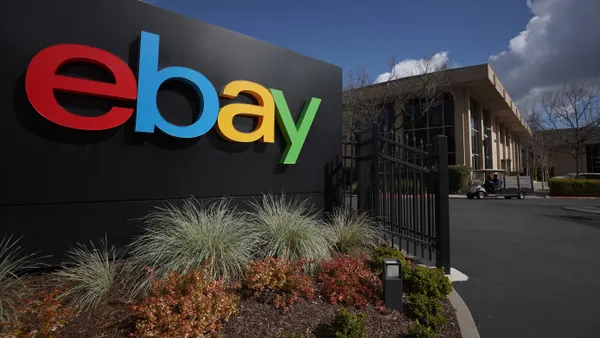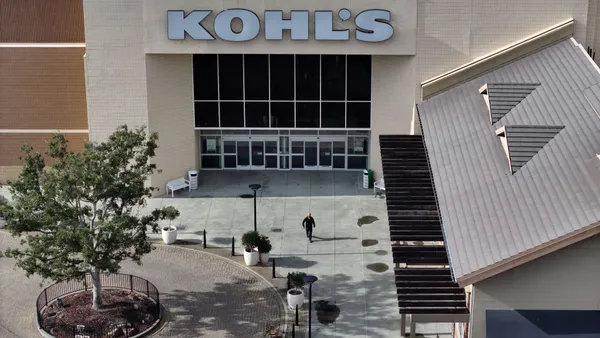Dive Brief:
- DHL intends to invest $137 million to build eight new e-commerce distribution centers in the U.S., the Wall Street Journal reports. The German shipping firm also will expand two existing centers as it responds to dynamic growth in cross-border package delivery, a market expected to reach $1 trillion by 2020.
- The new investment plan follows similar actions by DHL, including the construction of a $1.3 million Express service center in Chicago and a $35 million distribution center for its global forwarding network.
- DHL already has 20 such centers in the U.S. They allow retailers to stock items for sale online, which lets the company speed up the delivery process when U.S. customers order those products.
Dive Insight:
DHL is chasing a booming market opportunity, not just in e-commerce in general, but also more specifically in cross-border e-commerce, a portion of the market that is growing rapidly. The latter is an opportunity just a few shippers are adequately sized and positioned to address on a global basis—DHL being one of them, but of course not the only one.
However, this boost in investment also helps DHL strengthen against competitive pressure that is building against traditional shippers, particularly in the U.S., even if DHL might not put it that way. E-commerce is indeed an opportunity, but it has disrupted the logistics market just as much as it has disrupted traditional brick-and-mortar retail. New demands are being put on traditional shipping companies to support an increasing variety of shipping options and expectations.
Millions of dollars in new investment isn’t the only thing required to help traditional shippers keep up with changes in their sector. They must also think more innovatively about how they approach shipping. To some degree this means streamlining logistics capabilities with new software and other technologies, but it also means becoming more customer-centric and designing shipping practices around creating and maintaining positive customer experiences, something DHL also is looking into.
It's the same sort of challenge facing many retailers right now—or, for that matter, any companies in any industry being disrupted by massive technology change.











